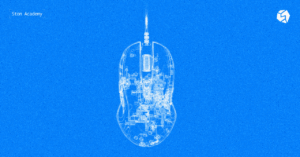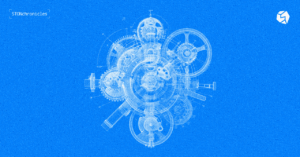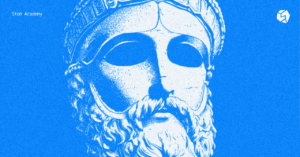-
xStocks: explore tokenized marketTrade tokenized stocks like AAPLx and TSLAx directly on TON with STON.fi. Read how xStocks bring traditional assets into the world of DeFi.
-
Cross-chain compatibility – what is it?Explore the mechanisms of blockchain interoperability and the key challenges to implementing cross-chain interoperability.
-
Web3 gaming: from hype to real play — and how TON fits inHere’s what Web3 gaming really is, why the first wave stumbled, and what’s changing now. Web3 gaming promised ownership, transparency, and open economies—but early experiments mostly delivered token farms with clunky UX. Today, the space is maturing: gameplay is returning to center stage, while scalable blockchains like TON make on-chain ...
-
Tonco integrated into OmnistonWe're excited to announce Tonco's integration into Omniston. By adding its liquidity pools, we're making swaps on TON more competitive, efficient, and user-friendly than ever. Explore what benefits this brings to users and developers across the ecosystem.
-
Oracles in DeFi: how prices reach smart contractsOracles serve as a vital link that brings real-world data onto the blockchain. Discover what an oracle is, how they operate, and the actual process of getting price data on-chain.
-
All you need to know about price impact on decentralized exchangesEver swapped tokens on a DEX and wondered why the price suddenly shifted before your trade was confirmed? That’s price impact in action. Unlike centralized exchanges (CEXs), where order books match buyers and sellers, decentralized exchanges (DEXs) use liquidity pools to execute trades. This means your trade size directly affects ...
-
Blockchain fees explained: what are they and how do they impact price?Crypto fans or investors often hear about “blockchain fees” or “gas fees”. These fees are part of blockchain transactions acting as the cost to use a blockchain network. Whether you are transferring Bitcoin, executing smart contracts on Ethereum or participating in a DeFi protocol on TON, understanding fees helps optimize ...
-
Common myths about blockchain technology explained (2025)Blockchain — is this just about Bitcoin or something? Have you ever heard someone saying that? What about claims that blockchain is completely unhackable or that every transaction is anonymous? These are just a few of the misconceptions surrounding blockchain technology. In this article, we’ll address some widespread myths about ...
-
The benefit of on-chain appsMany people believe that buying something as simple as a movie ticket or an airline ticket online, or on-chain using the decentralized network, is more of an unnecessary complication. The logic is that tickets and other similar products and services have been traditionally purchased off-chain since time immemorial and there ...







